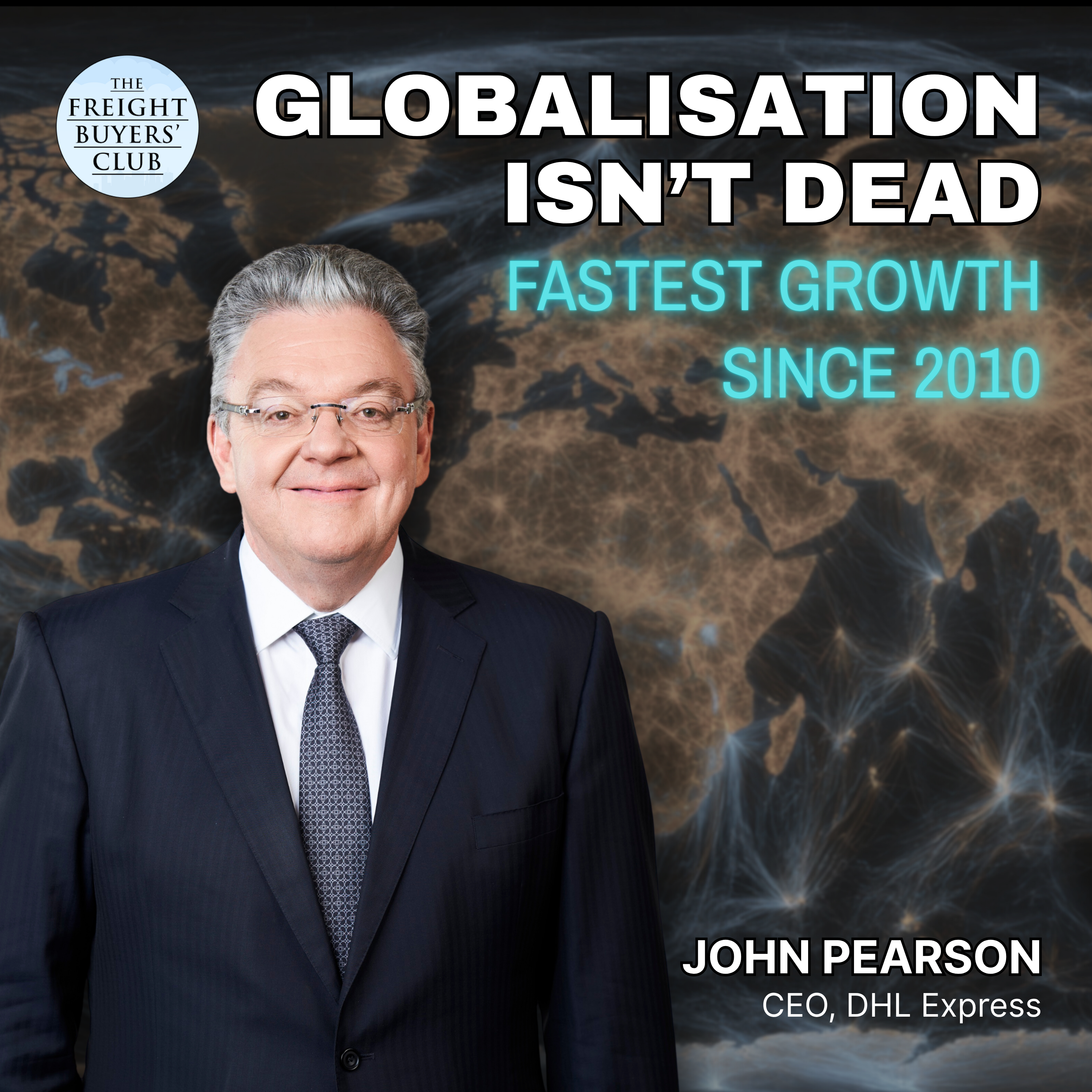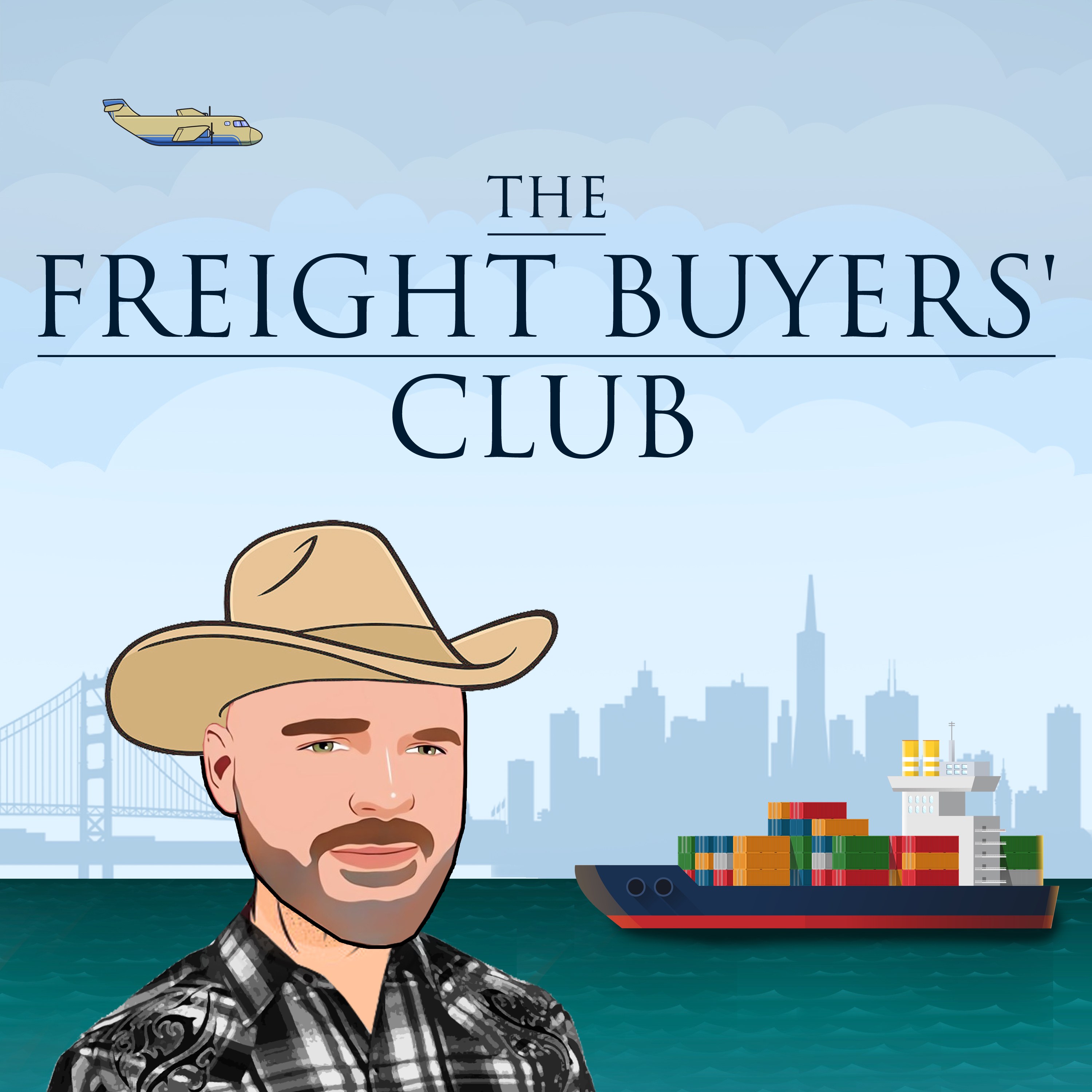Episode Transcript
[00:00:00] Speaker A: Foreign.
[00:00:03] Speaker B: South Africa's logistics system is fighting for its life. Corruption, collapse and political paralysis. But maybe, just maybe, a turnaround. Let's unpack the good, the Bad and the anc.
Hello, I'm Mike King. I've just got back from a fact finding tour of South Africa and this report produced the support of freight forwarding profitability specialists on Tegos cloud.
Now, I called this short explainer the Good, the Bad and the anc, South African Logistics and Shipping. But this is not political. I've no intention of unfairly attacking President Ramaphosa and his administration because let's be honest, that's already been done. But when you look at where South Africa's logistics system is now and where it's hoping to get to, and make no mistake, I'll be covering a lot of positives today, then politics is unavoidable. Most of South Africa's transport infrastructure, its railways and ports, falls under state control.
In particular, Transnet, the state owned operator that runs a majority of the country's rail and port network. So first let's rewind to former President Jacob Zuma. This undoubtedly is is the bad. Between 2009 and 2018, the Zuma years, Transnet became the poster child of state capture. Executives were handpicked for loyalty, not competence. Multi billion rand locomotive contracts went to companies tied to the Gupta family, complete with kickbacks and phantom consulting fees. Procurement rules were shredded, maintenance budgets vanished. And as the looting escalated, service quality collapsed. The ANC's policy of cadre deployment, putting politically connected figures in charge of strategic assets, turned transnet into a cash machine for cronies. By the time Zuma resigned in 2018, the country's logistics system had been stripped to the bone. Under President Cyril Ramaphosa, there are genuine efforts to clean house, but progress so far has been slow. Ports in the meantime, have plummeted down the World Bank's productivity rankings, rail remains inadequate and procurement reform has been sluggish. Few people wanted to talk about corruption directly to me, but everyone wanted to explain the symptoms, what it's done to the logistics sector. First, on years of neglected port investment, here's Peter Besnard, CEO of sassoa, representing South Africa's ship operators and agents.
[00:02:51] Speaker C: You know, for probably 10 or 12 years, there was no spend in the port.
So you can imagine terminal starting off in 77, working its way through 24, 7, 365 days of the year.
Equipment had to age. I think one of the big aims is to get us out of the position that we are with the world bank, which is not very favorable. We need to get to where we were at one stage, at one stage of the game. We were, I think, in 60th position.
[00:03:26] Speaker B: The story Peter tells is one repeated across South Africa's supply chain. Years of neglect that left critical equipment and systems to decay.
To understand what that meant for the companies trying to keep freight moving, here's Jacob van Rensberg of the South African association of Freight Forwarders.
[00:03:44] Speaker A: The situation for freight forwarders a year or two ago was significantly constrained. We were dealing with severe congestion, equipment breakdown and shortages, and especially vessel scheduling constraints. If you think about the main trade flows on the import side, we had instances perhaps more than a year or two ago at Durban, we had more than 40 containerized vessels waiting outside at Anchorage. So this is really important, especially for the manufacturing cycle in South Africa. On the import side, you know, goods that go into the cycle has been severely constrained. But then especially also on the export side, if we think about some of the main industries in South Africa, that would be your agricultural exports, which many are time sensitive goods. We had situations in both Durban and Cape Town, vessels missing their windows, that entire coal chain being delayed by a couple of days or even weeks at the height of the crisis. And then obviously there was a commodity boom with mining exports that South Africa did not really capitalize on because of the fact that there was significant constraints not only with our ports, but as well with the rail network and the Internet connecting the entire system.
So on average, if we look at some of the efficiency metrics, we were down by some 23 to 25%. Just comparing ourselves with ourselves some 10 years ago, for many freight forwarders and indeed VCOs, the situation really became a crisis management and damage control and not really something in the realm of planning. And that of course is very constraining for freight forwarders and programmers alike.
[00:05:31] Speaker B: So what about the good? Because as promised, it's not all doom and dust.
Everyone I spoke to praised the impact of transnet's new CEO, Michelle Phillips. Her willingness to take on entrenched interests, tackle theft and corruption and push for funding to improve performance.
[00:05:51] Speaker C: Michelle Phillips she has been remarkable in what she's sourced and the people that she's trying to get on board. And I think with her continuation it is going to make a big difference. She's a very hands on person.
Time is meaningless to her. She'll work all night and all day if she can.
You know, she's really driving things to.
[00:06:17] Speaker B: Full capacity and that hands on approach seems to be paying off. Under Philips Transnet's operational recovery plan is starting to show results. The government has greenlit $7 billion rand in infrastructure upgrades. Eleven private operators have been approved to run freight trains on transnet's network, the first real competition in decades. The special investigating unit has clawed back about 8 billion rand from corruption cases.
Losses are now narrowing and there's a flicker of belief returning to the sector. Rail reform, poor digitalisation and anti theft task forces, they're all starting to bite.
[00:06:58] Speaker A: The improvements we've noticed recently are very encouraging. There has been a greater collaboration between government agencies. In fact, we've created something that we've dubbed in South Africa the National Logistics Crisis Committee, the nlcc, which is a collaborative effort between all key stakeholders in the logistics network in South Africa.
And there has been also more openness to data sharing. Out of this National Logistics Crisis Committee, we created something that we have called the research unit and that's the coordination between port stakeholders and also industry bodies like ourselves that have looked at the various efficiencies and productivity measures and have tried to put these together to really paint a picture and read off the same script.
[00:07:48] Speaker B: Investment is now flowing into ports too. New operators are coming in. Cranes and yard gear are finally being replaced. And early signs of improvement are starting to show up in the data. Here's Shabnam Dawood, CEO of DHL Global Forwarding South Africa.
[00:08:06] Speaker D: As you know, 2024 reports have mentioned that all South African ports are actually currently the worst in the world.
Not exactly something we proud of.
But I feel optimistic, I feel optimistic about industry at the moment because we are now starting to hit record highs in terms of the number of TEUs that are being discharged at our various ports, the activities at the port. In fact, the numbers that are being released is close to that of 2018's peak season.
We don't want this to be a once off success and then have the issues with infrastructure falling apart again.
So there needs to be long term investment in terms of the facilities that are at the port.
There has been government commitment with regards to specific rail and I believe if we can turn that around, the confidence of migrating from roadhall to rail would make a comeback.
[00:09:07] Speaker B: But there's still much work to be done. Despite visible improvements, many of the structural challenges remain. Equipment is old, investment cycles are slow and operational efficiency is inconsistent from terminal to terminal. And for shippers and freight forwarders, that means South Africa still isn't performing anywhere near its potential. As Jacob van Rensburg explains, the problems run deeper than just maintenance. They're about integration and coordination across the whole network.
[00:09:40] Speaker A: The single biggest change that would make a difference in our logistics network in South Africa is true end to end integration. And this is both on the hard side and the soft side. So when we talk about integration, it's really about connecting the ports, the rail, the road and the rest of the interland to the entire network. And that's very important.
[00:10:03] Speaker B: And while Trump's tariffs are creating new headwinds for South African exporters, there's still growing optimism driven by shifting global trade relationships. Back to Jacob.
[00:10:14] Speaker A: What is very curious and encouraging to see is despite the certain trend globally with localization and burbs, somewhat of a inward looking view. We've seen some tariffs from the US on retaliation from China. If we consider South Africa's trading platform, our traditional partners have been mostly in the west, but we have seen a concerted realignment with the partners in the East. China, India, the Middle east have seen increased trade in a sense combating some of these tariffs.
[00:10:56] Speaker B: It's worth pointing out this isn't just a South African story, it's a global supply chain story. If South Africa can't move its minerals, agricultural exports or manufactured goods efficiently, it risks losing its position as Africa's trade gateway. So if Philips, the Ramaphosa administration and their supporters across the logistics landscape succeed, the impact will be felt far beyond South Africa.
[00:11:21] Speaker D: If South Africa had a world class logistics system, considering the key commodities that are being exported from South Africa, it would make us a major trade player.
Right now. Priority is given to the USA and China being the powerhouses globally. But South Africa is the game changer for Africa. South Africa is strategically positioned. We are the gateway into Africa and if we had the right infrastructure, I see this turning around for us as a continent, not just for South Africa as a country.
[00:11:56] Speaker B: So the good reforms are real and gathering momentum. The bad years of Graf left the system on life support and the ANC still caught between old habits and new realities, but making progress. South Africa's logistics future depends on one simple question. Can its politicians fix what they helped break?
I'm Mike King, this is the Freight Buyers Club, and if you care about how freight moves, you'll want to watch what happens next in South Africa.
Hope you enjoyed that. Guys, what's your take? Can Ramaphosa and Philips turn Transnet around or is this just another round of plan political window dressing? Please drop your comments.
Subscribe for more freight intelligence without the spin. You can find us on YouTube on all podcast platforms. I'm Mike King. This content was brought to you in partnership with Freight Forward, profitability specialist on Tegos Cloud. Thanks for listening and watching.


